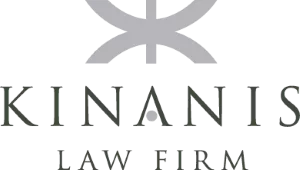- within Criminal Law topic(s)
- with Finance and Tax Executives
A. INTRODUCTION
Having a strategic geographical location, idyllic climate and a budding financial services industry, Malta has always been a natural choice for foreign nationals seeking to acquire EU residence.
In addition, the combination of having English as an official language, coupled with an advantageous tax regime and a particularly safe living environment has made the Mediterranean island even more enticing.
Acquiring a Maltese residence may offer a multitude of benefits and the various schemes available provide an interesting choice to the prospective applicant.
B. WHY ACQUIRE AN ADDITIONAL RESIDENCE?
One of the main reasons to acquire another residence is for fiscal purposes. In essence, most jurisdictions assert their right to tax a person (being either an individual or a company) based on residence. Hence, relocating or else, having another alternative residence may offer the client interesting tax planning opportunities.
The following are some reasons for which considering an additional residence can be deemed to be beneficial for the client:
- Alternative fiscal jurisdiction for individuals
- Advantageous tax regime to attract individuals to acquire Malta residence
- Adds substance for companies – a client can acquire Maltese residence and manage a company from Malta by being appointed as a director, hence increasing proper substance in Malta
- BEPS-friendly setup and hence comply with international tax developments
- More cost-efficient than having to appoint nominee directors
- Benefiting from EU's Freedom of Movement
C. DE-MYSTIFYING THE MYTHS OF MALTESE RESIDENCE
Acquiring residence does not mean having to live in Malta all year round. Neither does this mean having to live in Malta for a minimum prescribed period. In reality, what this entails is that Malta has to be considered the 'primary home' of the client. As international tax regulations are moving away from artificial set-ups, it is hence important to substantiate the links with Malta.
With careful planning and some consideration, the client can successfully achieve such a requirement and hence be treated as a residence in Malta for tax purposes.
D. RESIDENCE PERMIT REQUIREMENT
By way of a general rule, the Maltese laws prescribe the requirement to obtain a residence permit in order to reside in Malta for more than three months. Such residence permit is granted upon satisfying stipulated rules, depending as to whether the individual is an EU or non-EU national. This distinction is crucial to keep into account in order to determine which relevant scheme and its conditions are applicable.
Applications, with all the forms and supporting documentation, must be submitted in person. Biometric data will also be collected for the applicant and his dependents. The required supporting documentation and criteria depends under which scheme the applicant intends to qualify.
The table overleaf illustrates the main schemes and programmes applicable to foreigners who seek to acquire Maltese residence.
E. METHODS OF ACQUIRING MALTESE RESIDENCE
| Schemes available for EU and Non-EU nationals | |
| 1. Economic Self-Sufficiency Test | Requirement to prove that applicant is financially stable |
| 2. Employment in Malta |
Applicant will be given a work permit |
| 3. Self-Employment in Malta | Applicant proves that he can work as a self-employed in Malta |
| 4. Studying in Malta | Temporary permit given to students and parents and might be also extended to family members |
| 5. Family Members | This refers to family members of successful applicants who are residing in Malta |
| 6. Highly Qualified Persons Rules | Applicant who holds an eligible office in Financial Services, Gaming or Aviation will be given a beneficial tax rate of 15% on employment income. |
| 7. Qualifying Employment Rules | Applicant who holds an eligible office in digital products will be given a beneficial tax rate of 15% on employment income. |
| 8. Malta Individual Investor Program | Applicant will acquire a Maltese Passport |
| Schemes available only for EU nationals | |
| 9. Residence Program Rules | Beneficial Tax Scheme granted also residence |
| 10. Retirement Program
Rules |
Beneficial Tax Scheme granted also residence |
| Schemes available only for Non-EU nationals | |
| 11. Malta Residence and
Visa Program |
Applicant will acquire a residence permit |
| 12. Global Residence Program |
Beneficial Tax Scheme granted also residence |
| 13. Blue Card Scheme | Applicable for highly qualified employment and grants an EU-wide work permit |
To read this Overview in full, please click here.
The content of this article is intended to provide a general guide to the subject matter. Specialist advice should be sought about your specific circumstances.


